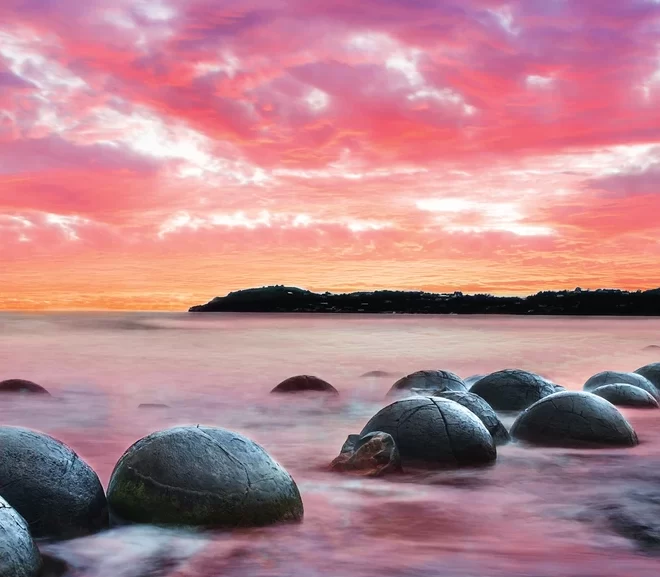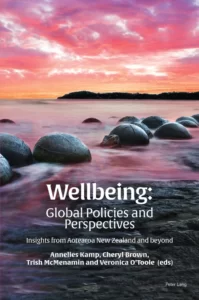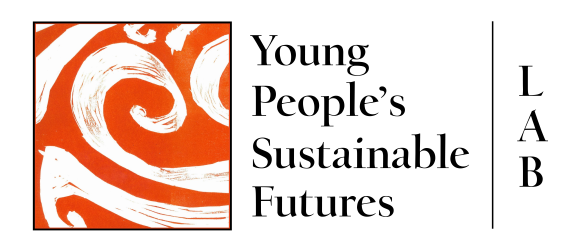
We (Peter Kelly, Seth Brown and James Goring) have just had a chapter published in a new international collection – Wellbeing: Global Policies and Perspectives, Insights from Aotearoa New Zealand and beyond – edited by Annelies Kamp, Cheryl Brown, Trish McMenamin, and Veronica O’Toole.

The chapter is titled ‘Being young’, ‘living well’, in/beyond the pandemic: Exploring the entanglements between COVID-19, the Anthropocene and young people’s wellbeing.
In the chapter we draw on three of the video stories we gathered during the conduct of the COVID-19 Recovery Scenarios for Young People in Melbourne’s Inner North.
In presenting an account of this project we tell a version of the stories of Michael, Ruth and Chloe, three of the more than fifty young people who participated in VideoAsk interviews. In thinking about what we can make of these stories, we draw on work in fields such as posthumanism, feminist studies of techno-science, and critical youth studies to situate the pandemic, and the challenges it poses for young people’s health and wellbeing, in a:
posthuman convergence between the Fourth Industrial Age and the Sixth Extinction, between an advanced knowledge economy, which perpetuates patterns of discrimination and exclusion, and the threat of climate change devastation for both human and non-human entities’ (Braidotti 2019).
In doing this work we draw on Samantha Fox’s (2016) understanding of humans as ‘biocultural creatures’ who emerge in and from and shape ‘biocultural habitats’. We have blogged about this theoretical framework here.
Our aim in the chapter, and in telling Ruth’s story that we reproduce below, is not a literal interpretation or analysis of these young people’s stories. Rather, as we have encountered these stories in the convergence that Braidotti identifies, we are provoked to think differently, to explore what thinking tools can move us beyond the ‘human exceptionalism’ and ‘methodological individualism’ that characterize the sociological orthodoxies of young people’s health and wellbeing.
Ruth’s Story
During 2020, Ruth was a Year 12 student who lived in the inner Melbourne suburb of Fitzroy. In her spare time, she works as a babysitter, and also enjoys doing ‘tech’ for a local ‘improvizational theatre’ company. Ruth is very close with her mum, dad and her nineteen year old brother, and tells us that ‘the bush’ is an important part of her life.
I am a lefty, what you might call a feminist. I believe In First Nations people’s rights, and my family are members of the Stolen Generations around Australia, but that’s not something I connect to so much because I’m very white. But yeah, it’s pretty cool. I’m named after my Aunty Ruth. I have a lot of strong women in my life and I really, really appreciate them.
During the lockdown – when residents were restricted to a 5 km travel radius from their home Ruth and her brother continued to live in Fitzroy, while her parents took care of their farm in rural Victoria. This was a difficult time for Ruth, who has a particularly strong connection with her mum:
I am really inspired by my mum. I think she’s a beast. I love her so much and I miss her. I haven’t seen my parents in about four months, nearly four months now.
During the lockdown the challenges of being physically isolated from her family were compounded for Ruth by family crisis and mental health concerns:
My uncle took his own life at the start of COVID-19, before it really became a thing, and it was really really difficult not being able to see his son.
It’s also been really hard not being able to see my Aunty. Because I love her a lot and she suffers a lot with depression, anxiety and has problems sleeping. So it’s been kind of tricky not being able to see her like I normally would.
These interconnected crises impacted Ruth’s ability to get up in the morning, to start her day and attend school online:
Obviously, I did school from home, but it is quite tricky to stay as motivated as I would in person, and often when it is the colder months, to get out of bed, and have a shower every morning.
And to have breakfast every morning. Not during class, before class.
These challenges had a significant impact on Ruth’s mental health:
I got really sad and really lonely. I turned eighteen in isolation, and this year was the first time in years that I would seriously consider suicide again. It scared me a lot.
But I’m okay, and I want to be here. There’s nothing more than I want to be alive.
In ways that illustrated her animated engagement with the video interview process, Ruth described some of the things that she had come to learn and appreciate during lockdown:
I’ve learnt how to make vegan chocolate chip cookies without a recipe.
I’ve learnt how to call my mum when I miss her, and how to say, ‘Hey Mum, I miss you.’
I’ve learned how to watch footy on my own.
And how to be okay with shit not going right.
I think I’ve also learned when it’s okay to stand up to people and tell them ‘Hey, where’s your mask’.
I’ve learnt that my bath does not do very good bubble baths.
I think I’ve learned a lot about the importance of me pushing myself to do my work, and giving myself a timetable so I can stick to it.
And I will stick to it.
The interviews conducted to inform the scenario planning process gave young people like Ruth an opportunity to think about the future, their own future, and the hopes and aspirations they had, but also the misgivings and anxieties and uncertainties that they might hold for these futures:
I hope, I hope that Australia has set clear goals to be a hundred percent renewable in the near future.
I hope that Indigenous Australians have more recognition of land rights.
I hope that my family is happy.
But what Ruth hopes for, and what she thinks the world will look like in 2025 are quite different:
How do I feel about it? I feel genuinely really scared. It frightens me.
And I think 2025 will look like one of two ways. An irreversible future where we’ve gone too far with fossil fuels and everything to take a step back. Or, we’ve taken the step and we’re moving towards a better future where we take more care of the planet.
In the futures that she imagines, Ruth cares deeply about, and hopes for, a number of things.
Dickheads in politics – less of them please.
My family’s mental health. The people I love and care about being happy and healthy and still being around.
COVID being managed. Having a vaccine.
Me being able to walk home alone at night without people feeling scared that I’m going to have something happen to you.
I’d like to be in a relationship with someone who makes me really happy. Who treats me in a really genuinely wonderful way. And who brings me joy. And maybe cake as well.
I hope that I will be confident. I hope that I will genuinely like the way my body looks.
I hope that I will have taken up, and given up, and taken up, and given up running and swimming and various competitive exercises with very little sticking to it.
I hope that I’m still doing theatre. I hope I am still doing theatre, please still be doing theatre! Cause you know it makes you happy.
